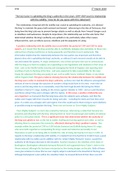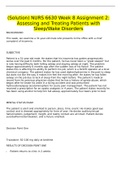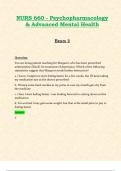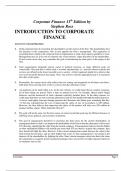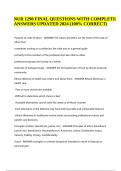Essay
'The key factor in upholding the King's authority in the years was his relationship with the nobility.' How far do you agree with this statement? A2 History Pearson Edexcel
- Institution
- PEARSON (PEARSON)
'The key factor in upholding the King's authority in the years was his relationship with the nobility.' How far do you agree with this statement? A2 History Pearson Edexcel. High achieving student answer. Checked by teachers. A/B grade.
[Show more]
